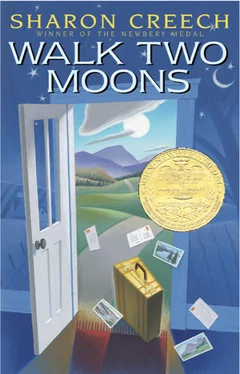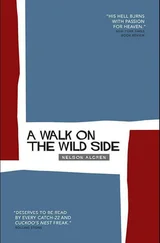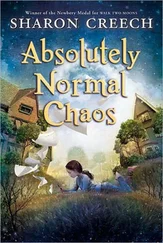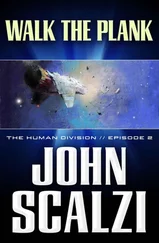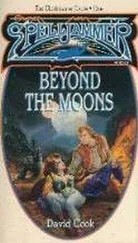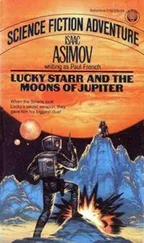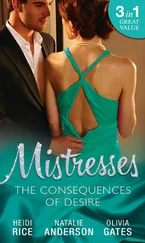“Heck,” Gramps said, “I oughta turn this wheel over to you, chickabiddy. All this driving is making me crazy as a loon.”
He was only joking, but he knew I could drive. He had taught me to drive his old pickup truck when I was eleven. We used to ride around on the dirt roads on their farm. I drove, and he smoked his pipe and told stories. He said, “You’re a helluva driver, chickabiddy, but don’t you tell your Momma I taught you. She’d thrash me half to death.”
I used to love to drive that old green pickup truck. I dreamed about turning sixteen and getting my license, but then when Momma left, something happened to me. I became afraid of things I had never been afraid of before, and driving was one of these things. I didn’t even like to ride in cars, let alone drive the truck.
The Black Hills were not really black. Pines covered the hills, and maybe at dusk they looked black, but when we saw them at midday, they were dark green. It was an eerie sight, all those rolling dark hills. A cool wind blew down through the pines, and the trees swished secrets among them.
My mother had always wanted to see the Black Hills. It was one of the sights she was most looking forward to on her trip. She used to tell me about the Black Hills, which were sacred to the Sioux Indians. It was their Holy Land, but white settlers took it as their own. The Sioux are still fighting for their land. I half expected a Sioux to stop our car from entering, and the thing is, I would have been on his side. I would have said, “Take it. It’s yours.”
We drove through the Black Hills to Mt. Rushmore. At first we didn’t think we were in the right place, but then, jing-bang, it was right before us. There, high up on a cliff face, were the sixty-foot-tall faces of Washington, Jefferson, Lincoln, and Teddy Roosevelt, carved right into the rock, staring somberly down on us.
It was fine seeing the presidents, I’ve got nothing against the presidents, but you’d think the Sioux would be mighty sad to have those white faces carved into their sacred hill. I bet my mother was upset. I wondered why whoever carved them couldn’t have put a couple Indians up there too.
Gram and Gramps seemed disappointed as well. Gram didn’t even want to get out of the car, so we didn’t stay long. Gramps said, “I’ve had enough of South Dakota, how about you, chickabiddy? How about you, gooseberry? Let’s get a move on.”
By late afternoon, we were well into Wyoming, and I added up the miles left to go. Maybe we could make it, just maybe. Then Gramps said, “I hope nobody minds if we stop at Yellowstone. It would be a sin to miss Yellowstone.”
Gram said, “Is that where Old Faithful is? Oh, I would love to see Old Faithful.” She looked back at me. “We’ll hurry. Why, I bet we’ll be in Idaho by the twentieth without any problem at all.”
“Did Peeby’s mother call?” Gram said. “Did she come home? Did Peeby phone the police? Oh, I hope this isn’t a sad story.”
Phoebe did go to the police. It was on the day that Mr. Birkway read us the poem about the tide and the traveler—a poem that upset both me and Phoebe, and I think it is what convinced her, finally, that she had to tell the police about her mother.
Mr. Birkway read a poem by Longfellow: “The Tide Rises, The Tide Falls.” The way Mr. Birkway read this poem, you could hear the tide rising and falling, rising and falling. In the poem, a traveler is hurrying toward a town, and it is getting darker and darker, and the sea calls to the traveler. Then the waves “with their soft, white hands” wash out the traveler’s footprints. The next morning,
The day returns, but nevermore
Returns the traveller to the shore,
And the tide rises, the tide falls.
Mr. Birkway asked for reactions to this poem. Megan said that it sounded soft and gentle, and it almost made her go to sleep.
“Gentle?” I said. “It’s terrifying.” My voice was shaking. “Someone is walking along the beach, and the night is getting black, and the person keeps looking behind him to see if someone is following, and a jing-bang wave comes up and pulls him into the sea.”
“A murder,” Phoebe said.
I went barreling on as if it was my poem and I was an expert. “The waves, with their ‘soft, white hands’ grab the traveler. They drown him. They kill him. He’s gone.”
Ben said, “Maybe he didn’t drown. Maybe he just died, like normal people die.”
Phoebe said, “He drowned.”
I said, “It isn’t normal to die. It isn’t normal. It’s terrible.”
Megan said, “What about heaven? What about God?”
Mary Lou said, “God? Is He in this poem?”
Ben said, “Maybe dying could be normal and terrible.”
When the bell rang, I raced out of the room. Phoebe grabbed me. “Come on,” she said. From her locker, she took the evidence she had brought from home, and we both ran the six blocks to the police station. I am not exactly sure why I went along with Phoebe. Maybe it was because of that poem about the traveler, or maybe it was because I had begun to believe in the lunatic, or maybe it was because Phoebe was taking some action, and I admired her for it. I wished I had taken some action when my mother left. I was not sure what I could have done, but I wished I had done something .
Phoebe and I stood for five minutes outside the police station, trying to make our hearts slow down, and then we went inside and stood at the counter. On the other side of it, a thin man with big ears was writing in a black book.
“Excuse me,” Phoebe said.
“I’ll be right with you,” he said.
“This is absolutely urgent. I need to speak to someone about a murder,” Phoebe said.
He looked up quickly. “A murder?”
“Yes,” Phoebe said. “Or possibly a kidnapping. But the kidnapping might turn into a murder.”
“Is this a joke?”
“No, it is not a joke,” Phoebe said.
“Just a minute.” He whispered to a plump woman in a dark blue uniform. She wore glasses with thick lenses. “Is this something you girls have read about in a book?” she asked.
“No, it is not,” I said. That was a turning point, I think, when I came to Phoebe’s defense. I didn’t like the way the woman was looking at us—as if we were two fools. I wanted that woman to understand why Phoebe was so upset. I wanted her to believe Phoebe.
“May I ask who it is who has been kidnapped or possibly murdered?” the woman said.
Phoebe said, “My mother.”
“Oh, your mother. Come along, then.” Her voice was sugary and sweet, as if she was speaking to tiny children. We followed her to a room with glass partitions. An enormous man with a huge head and neck, and massive shoulders, sat behind the desk. His hair was bright red, and his face was covered in freckles. He did not smile when we entered. After the woman repeated what we had told her, he stared at us for a long time.
His name was Sergeant Bickle, and Phoebe told him everything. She explained about her mother disappearing, and the note from Mrs. Cadaver, and Mrs. Cadaver’s missing husband, and the rhododendron, and finally about the lunatic and the mysterious messages. At this point, Sergeant Bickle said, “What sort of messages?”
Phoebe was prepared. She pulled them out of her book bag and laid them on the desk in the order in which they had arrived. He read each one aloud.
Don’t judge a man until you’ve walked two moons in his moccasins.
Everyone has his own agenda.
In the course of a lifetime, what does it matter?
You can’t keep the birds of sadness from flying over your head, but you can keep them from nesting in your hair.
Читать дальше
